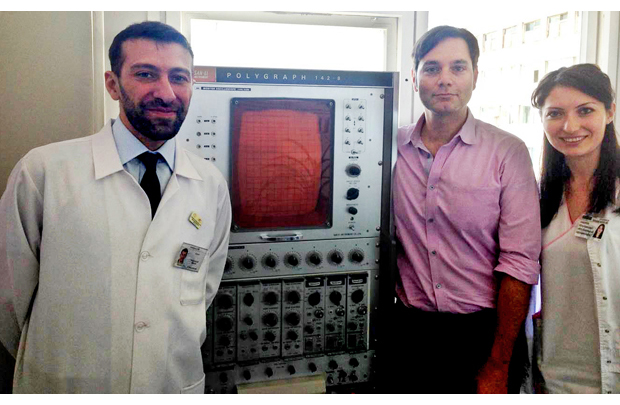Doctors in the United States routinely administer tissue plasminogen activator (t-PA) to some people having a stroke brought on by a blood clot. When administered shortly after the onset of symptoms, t-PA will prevent one patient of every eight treated from having a lifelong disability.
In Armenia, t-PA had been used only once until recently because it was held in a central pharmacy in the capital city, Yerevan. Hospitals did not stock it, so it was not available to patients unless they could buy it and bring it to the hospital. There was no organized system of stroke care focusing on rapid evaluation which included screening for eligibility to receive t-PA. Nerses Sanossian, MD, assistant professor of neurology at the Keck School of Medicine of USC, recently helped change that, so now two hospitals stock it and have protocols for its use.
Sanossian is part of a small group of neurologists of Armenian descent from the United States and Canada who launched a project to develop a better system of stroke care in Armenia. He and his colleagues held a stroke conference for young Armenian neurologists through Yerevan’s Erebouni Hospital in early June. They were on hand when the hospital dedicated a new ward to treating stroke patients, and then reached out to local media to raise awareness about the risk factors for stroke.
“The doctors we have met are smart and thirsty for knowledge,” Sanossian said, adding that Armenian doctors have few opportunities for ongoing training. Because of that, Sanossian will host an Armenian neurologist next year for two months of training at Keck Medical Center of USC.
Sanossian’s group helped establish a stroke center at Yerevan State Medical University last year and plans to continue setting up stroke centers elsewhere in Armenia. They are also working on a system of delivery, similar to the one in use in Los Angeles, that involves training paramedics and other emergency medical personnel to transport those stroke patients whose symptoms began fewer than two hours earlier to stroke centers.
“I believe there’s a great purpose to working at a university,” he said. “We have knowledge and skills and I believe it’s our duty to reach out to other countries that can learn from what we know.”
— Hope Hamashige


